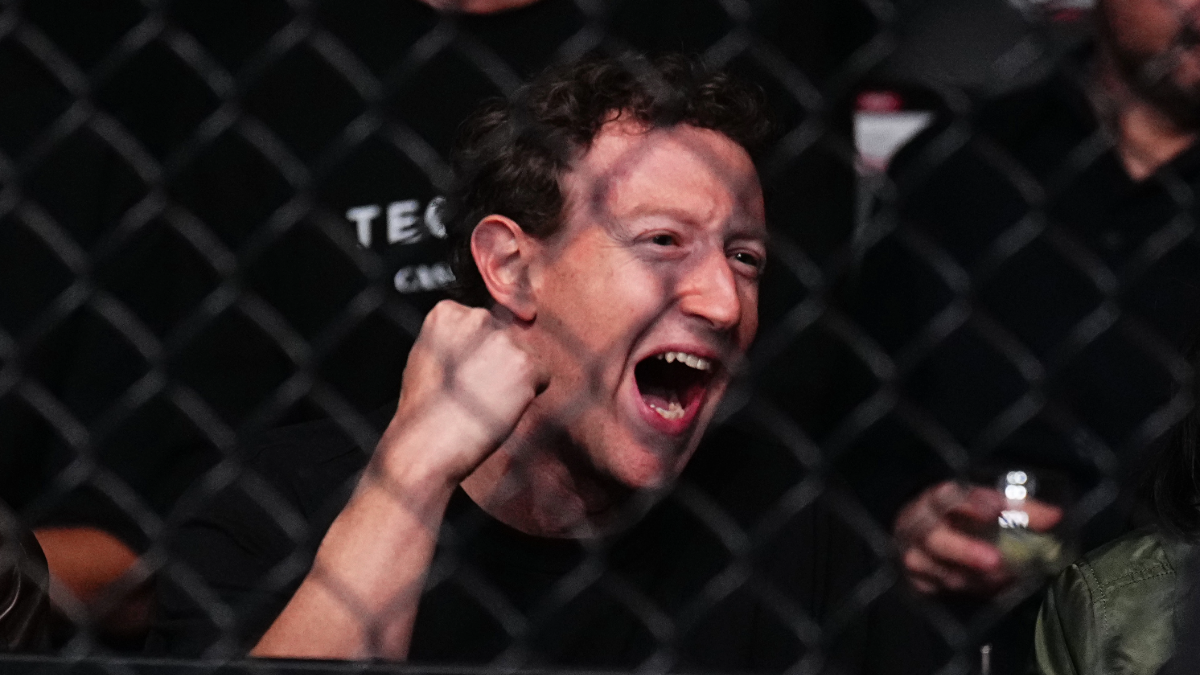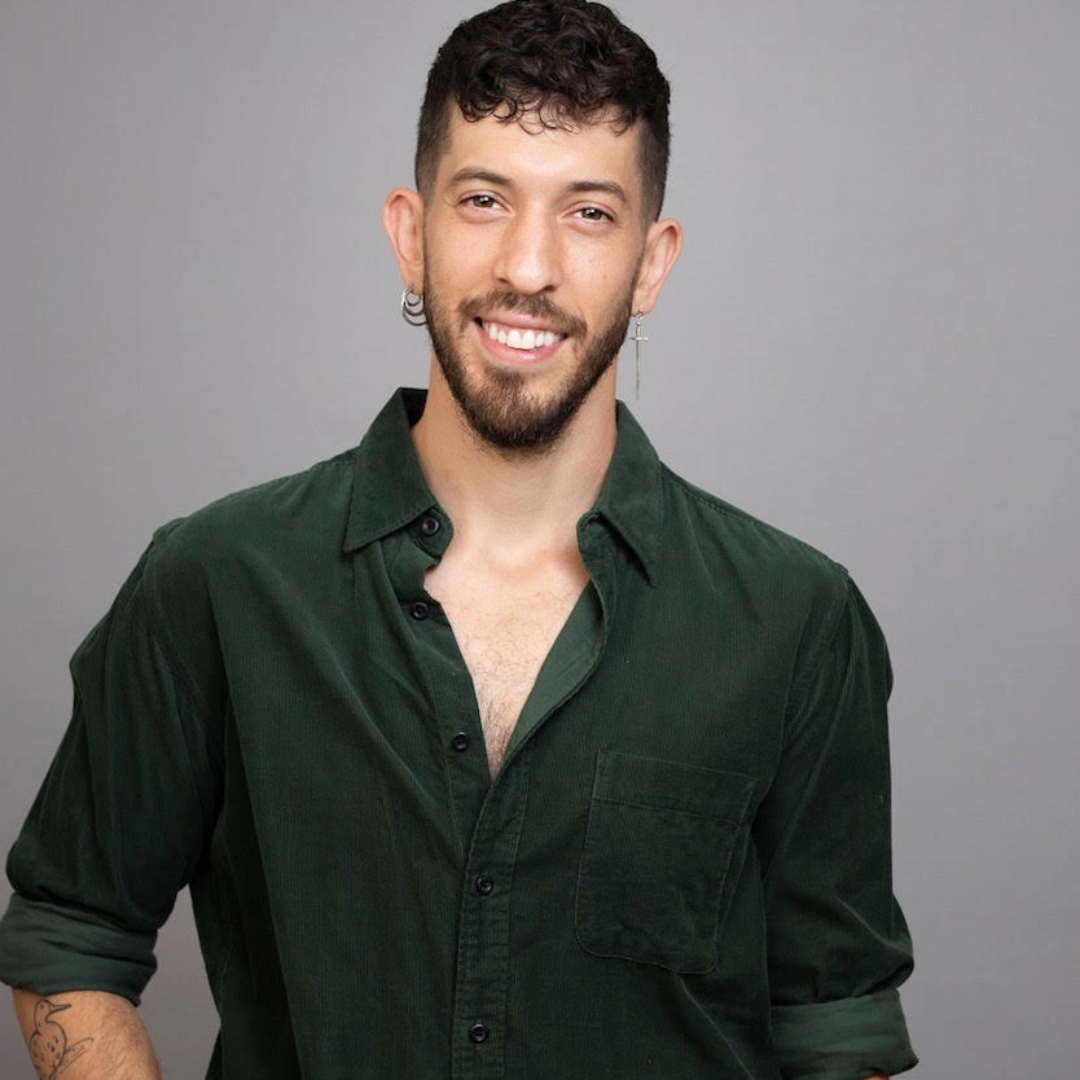Tech Bro Power Play: Zuckerberg vs. Global Tech Justice
Tom Divon, Jonathan Corpus Ong / Jan 9, 2025
Mark Zuckerberg is seen in attendance during the UFC 298 event at Honda Center on February 17, 2024 in Anaheim, California. (Photo by Chris Unger/Zuffa LLC via Getty Images)
Meta co-founder and CEO Mark Zuckerberg’s announcement that the company plans to dismantle key aspects of its trust and safety systems under the guise of "protecting free expression" is no championing of free speech—it’s a power play, a bold tech bro flex signaling a new alliance between Silicon Valley and Washington against global tech regulation and tech justice activism. By abandoning accountability, Zuckerberg isn’t just cutting fact-checking; he’s shredding the social contract, ignoring that Meta is no longer just a US platform—it belongs to the world. The stakes are immense, especially in fragile regions in the Global South where the integrity of the information ecosystem can mean the difference between life and death.
American Values vs Global Accountability
Perhaps the most striking component of Zuckerberg’s announcement is his unapologetic blow to global accountability in favor of a U.S.-centric vision. Zuckerberg’s announcement signals a new era of proud Americanization for Big Tech companies. By aligning with Trump and embracing an overtly Americanized ethos, Zuckerberg positions Big Tech as resistant to international calls for oversight and responsibility. His characterization of EU regulation as “stifling innovation” and Global South regulation as driven by corrupt “secret courts” shifts the narrative away from addressing local vulnerabilities. Instead, it prioritizes a narrow vision of free speech rooted in American exceptionalism, overlooking the global impact of these policies on marginalized communities and fragile information ecosystems.
Historically, Meta and other social media platforms have treated international markets—such as India, Indonesia, and the Philippines—as key to their growth strategies. Of Facebook’s 10 largest markets, seven are in Asia. Zuckerberg’s nod to American values feels like a rallying cry to “make Silicon Valley great again”—this time by framing trust and safety as a partisan project and relocating operations to Texas, a conservative stronghold, further entrenching a US-centric worldview. This move ignores the specific needs of international communities and the broader responsibility of platforms to address the local harms perpetuated by their algorithms and policies.
Big Tech’s Philanthrocapitalism Trap
The announcement's second punch lands with the revelation of the philanthrocapitalism trap. Meta’s withdrawal from US fact-checking partnerships should ring alarm bells in newsrooms and nonprofits in Asia, the Middle East, and the Global South. Post-2016, many organizations in these regions pivoted their original mandates to chase after Big Tech funding, using it to augment their revenue streams and expand their portfolios. Given the depth of these financial dependencies, Meta’s decision threatens to dismantle critical initiatives in media literacy, election monitoring, and independent research. The result is a dangerous void in frontline defenses against disinformation, leaving vulnerable communities at the mercy of unchecked narratives.
Based on a recent survey of nearly 100 Global South media organizations, many newsrooms and nonprofits have shifted their original missions to align with Big Tech funding opportunities. In the Philippines, even legal advocacy organizations sought funding to support media literacy initiatives during elections. We can anticipate that those newsrooms and nonprofits that have pivoted their work to digital literacy and, in the process, became financially dependent on Big Tech philanthrocapitalism would be most vulnerable by Meta’s new policy.
The Middle East exemplifies this dependency trap through initiatives like Meta's My Digital World program, which targets underserved areas by providing digital literacy training to youth and refugees in Palestine and Lebanon. While these programs appear altruistic, they are often aligned with Meta's corporate interests. Organizations conform to Meta’s funding priorities rather than pursue targeted solutions to address systemic local challenges. The sustainability of their efforts is shaky at best, with the money keeping them afloat and the savior narrative keeping Meta in control as a developmental ally.
This dynamic underscores a broader shift in Big Tech’s approach, with Zuckerberg’s announcement signaling they’re done apologizing for social media harms and wooing legacy media around the world as their global partners. Big Tech perceives Trump 2.0 as a shield against global tech regulation and the US election result as a moral justification that global tech justice efforts are “out of touch” with current realities.
The Hypocrisy of US “Free Speech”
The announcement’s third slam shatters Zuckerberg’s free speech hypocrisy. In Asia, where fact-checking organizations have historically tracked political elites’ campaign promises, Meta’s expected abandonment of professional oversight will leave a gaping hole. These organizations, often the frontline defense against falsehoods, will now scramble to adapt without the resources and partnerships Big Tech once provided under the guise of philanthropy. In the Middle East, the stakes are even higher. Misinformation in this region doesn’t just mislead—it fuels real-world conflict, with stakes tied directly to life and death. Meta’s lack of local-language moderators fluent in Arabic dialects and Hebrew exacerbates this crisis, allowing harmful content to spread unchecked and further intensify tensions.
This issue is particularly critical in Gaza, where no major media outlets operate, leaving independent journalists reliant on Meta platforms to broadcast the realities of the war to the world. However, this content has reportedly been subjected to stricter moderation, hindered by gaps in both technological and human understanding of the complexities of war zones. It was also during the 2021 Israel-Gaza war that the removal of posts documenting human rights violations highlighted Meta's failure to provide nuanced moderation. Misinformation, hate speech, and incitement to violence circulated freely while legitimate voices were silenced by faulty algorithms. Similarly, during the Iranian protests, automated moderation tools failed to recognize the urgency of pro-democracy content, lumping it together with hate speech.
Against this chaos, Meta shifts the burden of truth-telling onto users, positioning ‘Community Notes’ as a supposed tool for accountability. By abandoning professional fact-checking, Meta outsources moderation to users ill-equipped to handle the complexities of misinformation in volatile regions. This approach isn’t just ineffective—it’s dangerous. In a region like the Middle East, already grappling with deep-seated conflict, tools like Community Notes have devolved into a battleground for ideological conflicts, raising doubts about their ability to amplify marginalized voices in deeply polarized regions. Rather than investing in culturally informed moderation with local language and regional expertise, Meta opts for a hands-off strategy, leaving fragile ecosystems to navigate a worsening crisis of truth. What they call "letting users decide" is, in reality, just responsibility dodging dressed as empowerment.
Doing Good? Not in Capitalism
One truth remains unhidden: we need Meta—but we need a better Meta. Doing the right thing rarely aligns with profit, and Meta’s actions make that painfully clear. To move beyond the façade of philanthrocapitalism, Meta must commit to real change: decentralized moderation centers staffed by well-resourced experts fluent in regional languages and deeply attuned to the cultural and sociopolitical nuances of underserved markets in the Global South. This isn’t just a moral imperative—it’s a necessity to counter misinformation, protect marginalized voices, and rebuild shattered trust. Yet, as long as profit takes precedence over accountability, Meta will remain complicit in amplifying harm, a glaring contradiction to the ideals it pretends to uphold.
Authors

